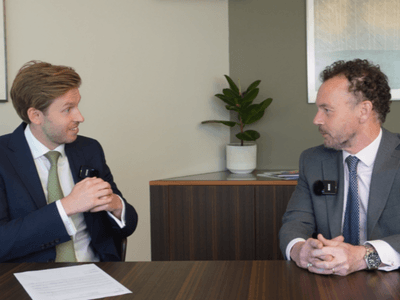The rapid rise in US interest rates over the previous 12 months precipitated a ‘mini’ banking crisis in March that started within regional banks in the US, for instance Silicon Valley Bank, that also led ultimately to the demise of one of the best known banking institutions in Switzerland, namely Credit Suisse, which was forced by the Swiss Government to be bought by its arch rival UBS. Government authorities and Central Banks acted fast, and were largely successful, to ensure this crisis was contained by backstopping the banks with access to cheap short term funding mechanisms to shore up the sector.
These actions enabled money supply to increase liquidity just as the news flow was filled with announcements from the large technology companies regarding Artificial Intelligence (AI) software (e.g. ChatGPT and Bard) that have been open sourced to everyone able to access the internet. ChatGPT is now the fastest-growing consumer application in history, taking only a matter of a few months to reach 100 million active users. By comparison, TikTok took 9 months and Instagram more than 2 years to reach this number. This led to a huge rally in some of the largest companies on the US market – including Apple, Microsoft, Amazon, Nvidia (the dominant chip manufacturer for the software) and Alphabet.
AI has the potential to revolutionise many different industries (healthcare, automobiles, education, and professional services) and make our lives easier and more efficient. However, there has been an equally loud chorus of concerns voiced from many corners, including from Elon Musk and Mo Gawdat (formerly Google X, Google’s research arm), over the potential dangers of such software. We are in the foothills of what may be one of the fastest revolutions ever to impact how we live our lives and banking giant, Goldman Sachs forecasts a tangible benefit to S&P 500 earnings over the next 20 years. The current phase of AI development is focused on delivering computing power that delivers the infrastructure to enable the training of specific types of models which could then evolve into the inference phase (once trained – the model can then predict).
A significant headwind to returns year to date has been the UK’s sticky inflation that has led to interest rates rising from 0.1% at the end of 2021 to 5% today, with more rate rises likely to follow. A combination of factors has led to the UK being the outlier on the inflation front including a very tight labour market, i.e. a lack of workers for the available jobs, driving wage price inflation combined with food and utility price inflation primarily caused by the war in Ukraine. I continue to believe that inflation will fall considerably over the second half although it is hard to forecast where it will settle so we are planning for interest rates to level out between 3-4% in the UK once the rate cycle turns.
Yields available to us today from short term gilts are attractive in the current environment especially as inflation falls back and we have been adding exposure, however, the increase in yields has impacted infrastructure and property funds which have seen capital values decline as these yields rise. Income derived from these investments remain intact however the capital declines have been a greater counter weight to the overall positive returns from equity exposure over the first half.
The resilience seen by the global economy this year has led to economists pushing out the timing of a global recession and some even suggesting we may not experience one. Whilst we see a general economic slowdown as likely, as we head towards 2024, particularly in the UK, the underlying momentum in the US economy coupled with a possible re-starting of Chinese economic stimulus may mean the downturn is shallow and short-lived. However, this could lead to further inflation across the globe and therefore interest rates remaining higher for longer, making it harder to justify current valuations where companies have too much debt and/or have lower barriers to entry thanks to factors such as the aforementioned advances of AI.
Despite the changing macro-economic environment impacting our short term returns, we remain excited about future prospects, given the huge advances in technologies across sectors, which the best companies will incorporate and adopt.
Freddy Colquhoun, Investment Director
The value of securities and their income can fall as well as rise. Past performance should not be seen as an indication of future results. All views expressed are those of the author and should not be considered a recommendation or solicitation to buy or sell any products or securities. At times, the firm or employees of the firm may have positions in securities discussed. Should any conflict of interest arise, these are managed under conflicts of interest policy, a copy of which is available on request.




